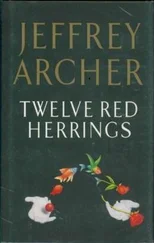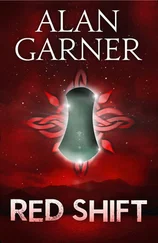Alan Bradley - A Red Herring Without Mustard - A Flavia de Luce Novel
Здесь есть возможность читать онлайн «Alan Bradley - A Red Herring Without Mustard - A Flavia de Luce Novel» весь текст электронной книги совершенно бесплатно (целиком полную версию без сокращений). В некоторых случаях можно слушать аудио, скачать через торрент в формате fb2 и присутствует краткое содержание. Жанр: Старинная литература, на русском языке. Описание произведения, (предисловие) а так же отзывы посетителей доступны на портале библиотеки ЛибКат.
- Название:A Red Herring Without Mustard: A Flavia de Luce Novel
- Автор:
- Жанр:
- Год:неизвестен
- ISBN:нет данных
- Рейтинг книги:4 / 5. Голосов: 1
-
Избранное:Добавить в избранное
- Отзывы:
-
Ваша оценка:
- 80
- 1
- 2
- 3
- 4
- 5
A Red Herring Without Mustard: A Flavia de Luce Novel: краткое содержание, описание и аннотация
Предлагаем к чтению аннотацию, описание, краткое содержание или предисловие (зависит от того, что написал сам автор книги «A Red Herring Without Mustard: A Flavia de Luce Novel»). Если вы не нашли необходимую информацию о книге — напишите в комментариях, мы постараемся отыскать её.
A Red Herring Without Mustard: A Flavia de Luce Novel — читать онлайн бесплатно полную книгу (весь текст) целиком
Ниже представлен текст книги, разбитый по страницам. Система сохранения места последней прочитанной страницы, позволяет с удобством читать онлайн бесплатно книгу «A Red Herring Without Mustard: A Flavia de Luce Novel», без необходимости каждый раз заново искать на чём Вы остановились. Поставьте закладку, и сможете в любой момент перейти на страницу, на которой закончили чтение.
Интервал:
Закладка:
“Oh, Sergeant Graves!” Feely said. “You must take mine, too!”
“ Oh, Sergeant Graves! You must take mine, too! ”
I could have swatted her.
“Happy to, Miss Ophelia,” he said, taking up her hand and dropping mine.
“Better ink the glass again,” I said, “otherwise you might make a bad impression.”
The sergeant’s ears went a bit pink, but he soldiered on. In no time at all he had recoated the glass with a fresh film, and was taking up Feely’s hand as if it were some venerable object.
“Did you know that, in the Holy Land, they have the fingerprints of the angel Gabriel?” I asked, trying desperately to regain his attention. “At least they used to. Dr. Robert Richardson and the Earl of Belmore saw them at Nazareth. Remember, Feely?”
For nearly a week—before our recent set-to—Daffy had been reading aloud to us at the breakfast table from an odd volume of the doctor’s Travels along the Mediterranean and Parts Adjacent , and some of its many wonders were still fresh in my mind.
“They also showed him the Virgin Mary’s Kitchen, at the Chapel of the Incarnation. They still have the cinders, the fire irons, the cutlery—”
Something in the back room of my brain was thinking about our own fire irons: the Sally Fox and Shoppo firedogs that had once belonged to Harriet.
“That will be quite enough, thank you, Flavia,” Feely said. “You may fetch me a rag to wipe my fingers on.”
“Fetch it yourself,” I flung at her, and stalked from the room.
Compared with my life, Cinderella was a spoiled brat.
 EIGHT
EIGHT 
ALONE AT LAST!
Whenever I’m with other people, part of me shrinks a little. Only when I am alone can I fully enjoy my own company.
In the kitchen garden, I grabbed my faithful old BSA Keep-Fit from the greenhouse. The bicycle had once belonged to Harriet, who had called her l’Hirondelle , “the Swallow”: a word that reminded me so much of being force-fed cod-liver oil with a gag-inducing spoon that I had renamed her “Gladys.” Who, for goodness’ sake, wants to ride a bicycle with a name that sounds like a sickroom nurse?
And Gladys was much more down-to-earth than l’Hirondelle : an adventurous female with Dunlop tires, three speeds, and a forgiving disposition. She never complained and she never tired, and neither, when I was in her company, did I.
I pedaled southeast from Buckshaw, wobbling slowly along the edge of the ornamental lake. To my left was a somewhat flat expanse called the Visto which had been cleared by Sir George de Luce in the mid-nineteenth century to serve as what he described in his diary as a “coign of vantage”: a grassy green plain across which one was supposed to contemplate the blue enfolding hills.
In recent times, however, the Visto had been allowed to become little more than an overgrown cow pasture: a place where nettles ran riot and the contemplator’s clothing was at risk of being ripped to tatters. It was here that Harriet had kept Blithe Spirit , her de Havilland Gypsy Moth, which she had flown regularly up to London to meet her friends.
All that remained now of those happy days were the three iron rings, still rusting somewhere among the weeds, to which Blithe Spirit had long ago been tethered.
Once, when I had asked Father how Buckshaw looked from the air, he had gone all tight around the temples.
“Ask your aunt Felicity,” he’d said gruffly. “She’s flown.”
I’d made a mental note to do so.
From the Visto an overgrown path ran south, crossing here and there long-abandoned lawns and hedges, which gave way eventually to copses and scrub. I followed the narrow track, and soon arrived at the Palings.
The Gypsy’s caravan was as I had left it, although the ground bore signs of many “hobnail boots,” as Feely had called them.
Why was I drawn back here? I wondered. Was it because the Gypsy had been under my protection? I had, after all, offered her sanctuary in the Palings and she had accepted. If amends were to be made, I would make them on my own—not because I was made to do so by a sense of shame.
Gry was grazing contentedly near the elders at the far side of the grove. Someone had brought him back to the Palings. They had even thought to bring a bale of fresh hay to the clearing, and he was making short work of it. He looked up at me without curiosity and then went back to his food.
“Who’s a good boy, then?” I asked him, realizing, even as I said it, that these were words to be used in addressing a parrot.
“Good Gry,” I said. “Splendid horse.”
Gry paid not the slightest attention.
Something fastened to one of the tree trunks near the bridge caught my eye: a white wooden panel about six feet from the ground. I walked round the other side for a closer look.
Police Investigation—No Admittance by Order—Hinley Constabulary
The signboard was facing east—away from Buckshaw. Obviously it was meant to deter those hordes of the idly curious who flock to places where blood has been shed like crows to a winter oak.
I was, after all, on my own property. I could hardly be trespassing. Besides, I could always claim that I hadn’t seen the thing.
I put a foot carefully onto one of the caravan’s shafts and, waving my arms for balance like an aerialist, made my way slowly, heel to toe, up the slope to the driving board. To my surprise, the door had been replaced.
I paused to prepare myself—took a deep breath—then opened the door and stepped inside.
The blood had been cleaned up—I saw that at once. The floor was newly scrubbed and the sharp clean smell of Sunlight soap still hung in the air.
It wasn’t dark inside the caravan, but neither was it light. I took a step towards the rear and froze in my tracks.
Someone was lying on the bed!
Suddenly my heart was pounding in a frenzy, and my eyes felt as if they were about to pop out of their sockets. I hardly dared breathe.
In the gloom of the drawn curtains I could see that it was a woman—no, not a woman—a girl. A few years older than me, perhaps. Her hair was raven black, her complexion tawny, and she was wrapped in a shapeless garment of black crepe.
As I stood motionless, staring at her face, her dark eyes opened slowly—and met mine.
With a quick, powerful spring she leapt from the bed, snatching something from a shelf, and I suddenly found myself wedged sharply against the wall, my arm twisted behind my back and a knife at my throat.
“Let go! You’re hurting me!” I managed to squeeze the words out through the pain.
“Who are you? What are you doing here?” she hissed. “Tell me before I slit your gullet.”
I could feel the knife’s blade against my windpipe.
“Flavia de Luce,” I gasped.
Damn it all! I was beginning to cry.
I caught a glimpse of myself in the mirror: her arm beneath my chin … my bulging eyes … the knife—the knife!
“That’s a butter knife,” I croaked in desperation.
It was one of those moments that might later seem amusing, but it wasn’t now. I was trembling with fear and anger.
I felt my head jerk as she pulled back to look at the blade, and then I was being pushed away.
“Get out of here,” she said roughly. “Get away—now—before I take the razor to you.”
I didn’t need a second invitation. The girl was obviously mad.
I stumbled towards the door and jumped to the ground. I grabbed Gladys and was halfway to the trees when—
“Wait!”
Her voice echoed in the glade.
Читать дальшеИнтервал:
Закладка:
Похожие книги на «A Red Herring Without Mustard: A Flavia de Luce Novel»
Представляем Вашему вниманию похожие книги на «A Red Herring Without Mustard: A Flavia de Luce Novel» списком для выбора. Мы отобрали схожую по названию и смыслу литературу в надежде предоставить читателям больше вариантов отыскать новые, интересные, ещё непрочитанные произведения.
Обсуждение, отзывы о книге «A Red Herring Without Mustard: A Flavia de Luce Novel» и просто собственные мнения читателей. Оставьте ваши комментарии, напишите, что Вы думаете о произведении, его смысле или главных героях. Укажите что конкретно понравилось, а что нет, и почему Вы так считаете.












